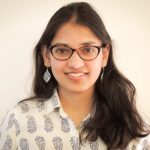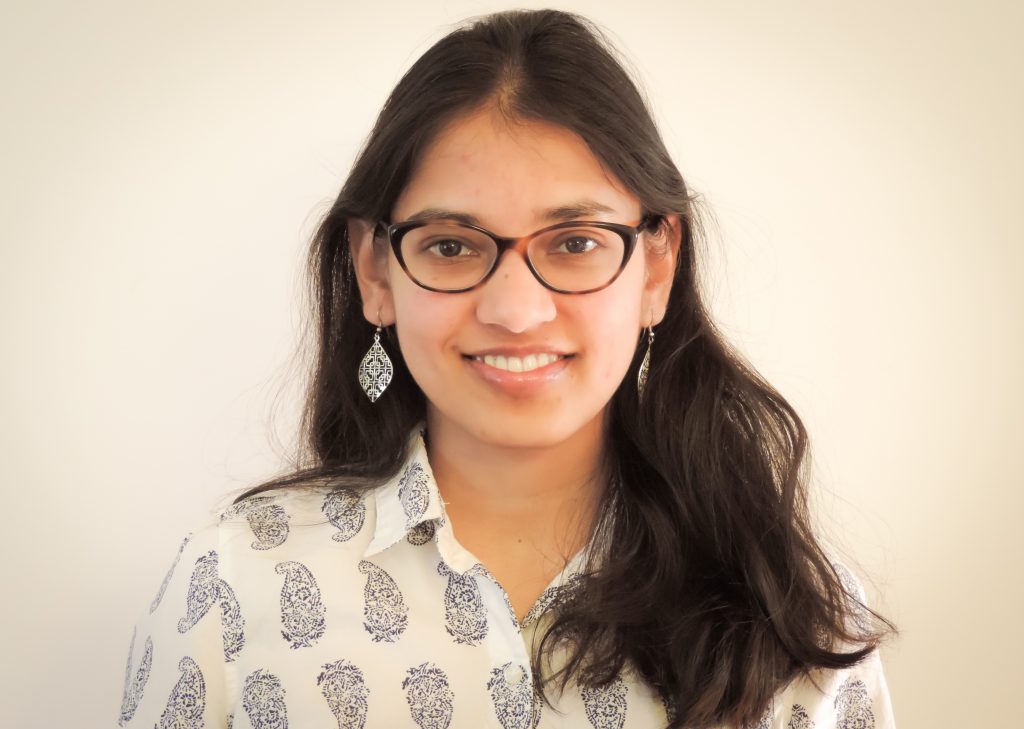We’re taking time over the following weeks to get to know the members of the GSA’s Early Career Scientist Committees. Join us every week to learn more about our 2019 early career scientist advocates.

Vandana Raghavan
Communication and Outreach Subcommittee
Cornell University
Research Interest
Maintaining the correct genetic code of an organism is essential for its survival and propagation. DNA duplication, a recurring process in the cells, may introduce mutations in the genetic code. Mismatch repair proteins identify and correct these mutations. While mutations are often harmful, there are situations where they are beneficial for evolution and adaptation to stress. My goal is to understand how the balance between maintaining the genetic code and generating mutations for adaptation is reached. I study this from the perspective of the mismatch repair system and how partial disruptions in its function can affect survival and adaptability using baker’s yeast.
Yeast bearing mismatch repair defects have the ability to adapt faster to stress in a laboratory setting. I want to see if mismatch repair defects are present in natural strains of yeast. If so, I investigate if these defects help in adaptation and are tolerated well by the organism. By using the power of genomics and yeast genetics, I can look at genetic variations and chromosome level changes, and I measure mutation rates in the isolates. These tools enable me to gain a better understanding of whether yeast use these mechanisms in nature.
My studies showing mismatch repair defects in yeast isolates illuminates a possible mechanism that yeast may be using to adapt faster and cause infections in the human body. Yeast are usually not pathogenic to humans as it is a stress environment for them. Yet, in recent years, the number of yeast infections in immunocompromised patients has gone up. What makes this more significant is that these mismatch repair defects are present in some of these human clinical yeast isolates.
As a PhD-trained scientist, you have many career options. What career paths interest you the most?
My PhD trained me to understand a variety of scientific research, come up with ideas to answer scientific questions, and communicate my science effectively to audiences with different levels of scientific expertise. Presenting my science has been a great learning experience for me while also being extremely rewarding. I’ve enjoyed everything from formal presentations, manuscript writing, mentoring other students, and explaining science to non-scientists.
I’m interested in career tracks that require me to explain scientific findings and concepts either to solve research-related problems or to serve as a liaison between researchers and marketing teams or clients. My training in life-science research puts me in a unique position to be able to understand, compile, and communicate complicated research. Careers in the pharmaceutical and biotechnology industries, such as medical writing, medical science liaison, or program management, would be great fits for me.
In addition to your research, how else do you want to advance the scientific enterprise?
As a scientist, I have the ability to bridge the gap between science and the public by communicating laboratory-level science in more meaningful terms. I find that presenting science to scientists or non-scientists has a threefold advantage. It makes you think about the big-picture, welcomes audience input that broadens the scope of the research while highlighting the strengths and weaknesses of the work, and opens up your research to possible collaborations. To that effect, I have been active in science outreach to explain concepts to the public interested in science as well as to cultivate an interest in science in small children.
At universities, there are usually a lot of opportunities to present to scientists, but I want to create more platforms for students to share their science with the community. Working toward this goal, I have been involved with the Broadening Experiences in Scientific Training program at Cornell, where we’ve engaged in outreach activities. These experiences are not only instrumental in making laboratory research more accessible to non-scientists, but I also feel fulfilled in being able to make a difference within my community. I’ll continue doing outreach activities to promote science after my PhD and would like to promote a similar culture in my future workplace.
As a leader within the Genetics Society of America, what do you hope to accomplish?
Being part of the Communication and Outreach Subcommittee is exciting. I’m able to work with other students and postdocs interested in science outreach, while also becoming part of an international network. I look forward to gaining experience writing about a variety of scientific articles, which will set the stage for learning how to make outreach more impactful. It’s exciting to add my perspective to articles using my knowledge of genetics research and also my experience in communicating science to non-scientists. My goal during my time on the committee is to broaden the committee’s ability to reach a wider audience. By doing this, we will make people more aware of the benefits of basic research, which will help advance the interests of the community.
Previous Leadership Experience
Science Ambassador—City of Science
Graduate and Undergraduate Student Mentor—Cornell University
Responsible Conduct of Research Discussion Leader—Cornell University
Teaching Assistant—Cornell University































